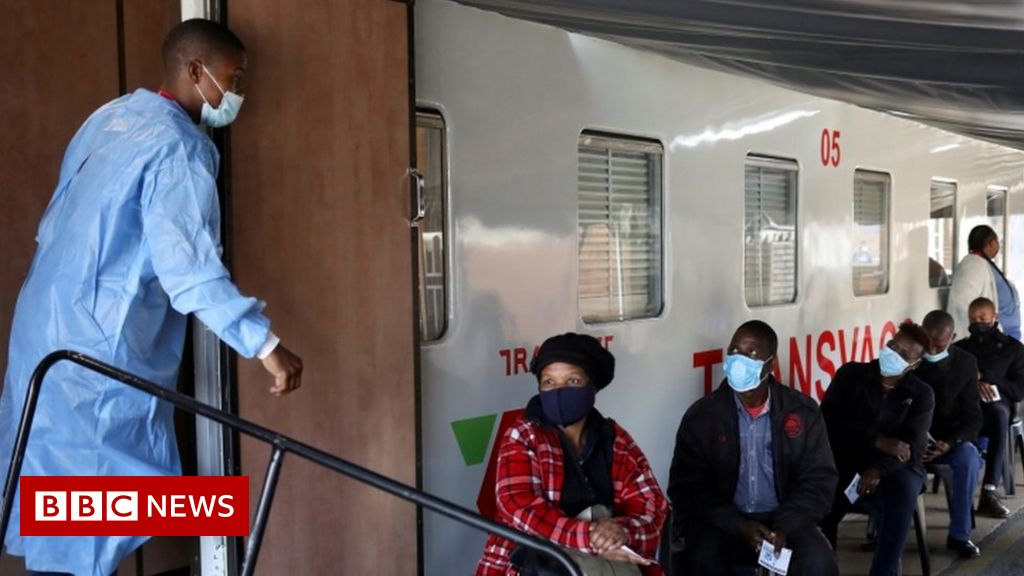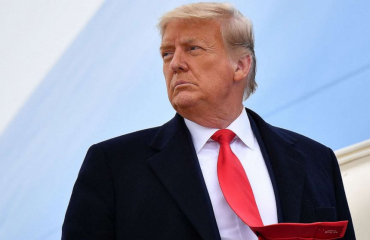Covid: South Africa 'punished' for detecting new Omicron variant – BBC News
South Africa has complained it is being punished – instead of applauded – for discovering Omicron, a concerning new variant of Covid-19.
The foreign ministry made the statement as countries around the world restricted travel from southern Africa as details of the spread emerged.
Early evidence suggests Omicron has a higher re-infection risk.
The World Health Organization (WHO) said on Friday that the new variant was "of concern".
Several cases have now been identified in Europe – two in the UK, two in Germany, one in Belgium and another one in Italy, while a suspected case was found in the Czech Republic.
Israel, where the new variant has been confirmed, has decided to ban all foreigners from entering the country from midnight Sunday.
The measure will last for 14 days, according to the Times of Israel.
Omicron cases have also been detected in Botswana, Hong Kong and Israel.
Hundreds of passengers arriving in the Netherlands from South Africa are being tested for the new variant.
Some 61 people on two KLM flights were positive for Covid-19 and have been quarantined at a hotel near Amsterdam's Schiphol airport while they have further tests, Dutch officials said.
The Netherlands is currently struggling with a record-breaking surge in cases. An extended partial lockdown comes into force there on Sunday evening.
The new Omicron variant was first reported to the WHO from South Africa on 24 November.
A statement by the South African foreign ministry on Saturday strongly criticised the travel bans.
"Excellent science should be applauded and not punished," it said.
The bans were "akin to punishing South Africa for its advanced genomic sequencing and the ability to detect new variants quicker".
The statement added that the reaction had been completely different when new variants were discovered elsewhere in the world.
An African Union official told the BBC developed countries were to blame for the emergence of the variant.
"What is going on right now is inevitable, it's a result of the world's failure to vaccinate in an equitable, urgent and speedy manner. It is as a result of hoarding [of vaccines] by high-income countries of the world, and quite frankly it is unacceptable," said AU vaccine delivery alliance co-chair Ayoade Alakija.
"These travel bans are based in politics, and not in science. It is wrong… Why are we locking away Africa when this virus is already on three continents?"
On Friday and Saturday, a number of countries announced new measures:
The WHO said the number of cases of this variant, initially named B.1.1.529, appeared to be increasing in almost all of South Africa's provinces.
"This variant has a large number of mutations, some of which are concerning," the UN public health body said in a statement on Friday.
It said "the first known confirmed B.1.1.529 infection was from a specimen collected on 9 November".
This video can not be played
The WHO said it would take a few weeks to understand the impact of the new variant, as scientists worked to determine how transmissible it was.
A top UK health official warned that vaccines would "almost certainly" be less effective against the new variant.
But Professor James Naismith, a structural biologist from the University of Oxford, added: "It is bad news but it's not doomsday."
The head of the South African Medical Association told the BBC that the cases found so far in South Africa – where only about 24% of the population is fully vaccinated – were not severe, but said investigations into the variant were still at a very early stage.
"The patients are mostly complaining about a sore body and tiredness, extreme tiredness and we see it in the younger generation, it's not the older people… We're not talking about patients that might go straight to a hospital and be admitted," Dr Angelique Coetzee said.
US infectious disease chief Dr Anthony Fauci said that while the reports on the new variant threw up a "red flag", it was possible that vaccines might still work to prevent serious illness.
The WHO has warned against countries hastily imposing travel restrictions, saying they should look to a "risk-based and scientific approach".
Dozens test positive on SA-Netherlands flights
'A dark day': South Africans remember Desmond Tutu. Video'A dark day': South Africans remember Desmond Tutu
Covid-related travel chaos spills into new week
Myanmar: Charity staff missing after 'army attack'
Tutu – the staunch and steadfast healer of a nation
India's unwinnable battle against spitting
The controversial art of 'Australia's Banksy'
'I'm Jewish and black – where do I fit in?'
Hairpin-to-house trader plans to keep on swapping. VideoHairpin-to-house trader plans to keep on swapping
Fear and loathing in South Africa
My art channels the pain from Ethiopia's war. VideoMy art channels the pain from Ethiopia's war
The forbidden erotica of ancient Pompeii
Love story sends TV fans in search of idyllic Alps
One of the most notorious legal cases in history
A Very British Scandal: Watch the gripping new drama on iPlayer
A Christmas party with a twisted end…
Death in Paradise returns with a festive special!
© 2021 BBC. The BBC is not responsible for the content of external sites. Read about our approach to external linking.



